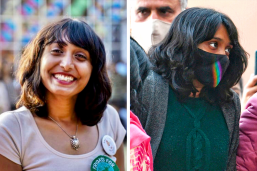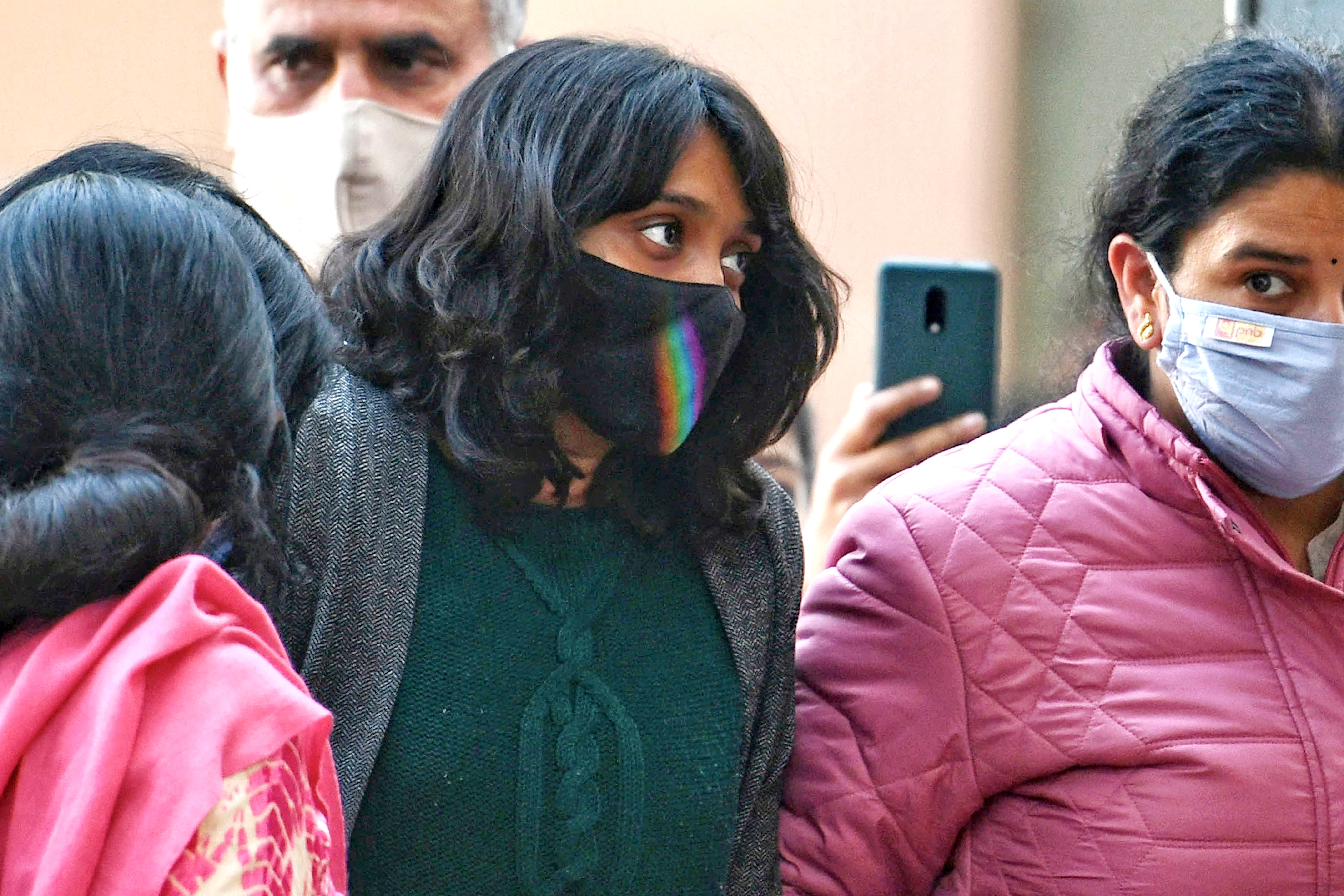This Indian Activist Who Was Jailed For Sharing A Google Doc For The Farmer’s Protests Has Been Granted Bail
A court in India grants bail to climate activist Disha Ravi, 22, jailed for sharing a toolkit in support of the farmers protest against new agricultural laws.

Disha Ravi, a 22-year-old Indian climate activist who was jailed for sharing a document to help farmers protest against new agricultural policies, has been granted bail.
Ravi, one of the founder of the Indian branch of the Fridays for Future climate movement, was arrested at her house in Bengalore on Feb. 13 and later taken into custody.
The Dehli police accused her of sedition and conspiracy. She was alleged to have formulated and disseminated a “toolkit” in the form of a Google Doc that contained information that supported farmers in the ongoing protests against Prime Minister Narendra Modi’s agricultural policies.

The toolkit provides contact information of government representatives and calls for joining rallies and signing petitions. International activists say it is a commonly distributed document used to campaign for their causes.
The police said she had shared the toolkit with fellow Swedish climate activist Greta Thunberg, who tweeted a link to the file and later deleted it, and helped “spread disaffection against the Indian State.”
Police also said the document was involved in the conspiracy that led to a huge rally on Jan. 26, which resulted in violence between farmers and the police.

After her arrest, Ravi said in court that she had edited two lines of the Google Doc but had not disseminated it, the New York Times reported.
“They are the ones who are providing us with our food,” she told the court, referring to the farmers. “And we all need to eat.”
On Tuesday Feb. 24, Ravi was granted bail with the court saying there was “scanty” and “sketchy” evidence to back the charges of sedition and asserted that people could not be jailed simply because they disagreed with government policies, according to the Hindustan Times.

Ravi’s arrest has triggered anger amongst opposers of the government, who criticized the government’s crackdown on activists. Thousands of famers have been protesting for months against a slate of new laws that deregulate agriculture.
Under the three new laws, which were passed in September, the government would no longer serve as a middle man between farmers and companies and guarantee minimum prices for crops.
Prime minister Narendra Modi said the laws will give farmers the freedom to set their own prices and sell directly to companies. However, farmers say the laws remove wage protections and may lower crop prices and lead to corporate exploitation.




